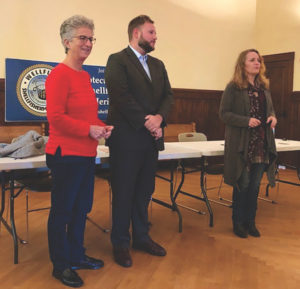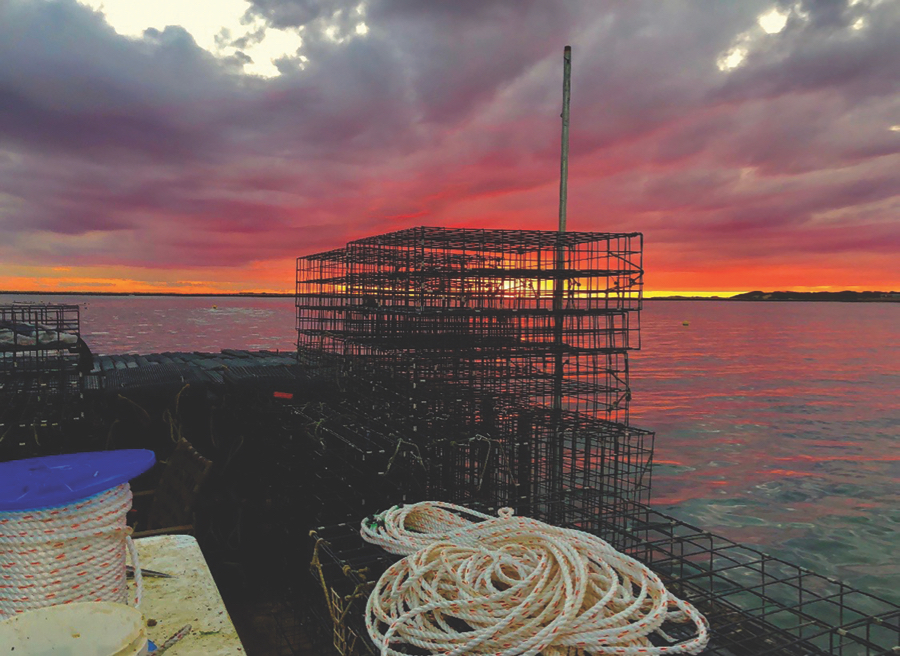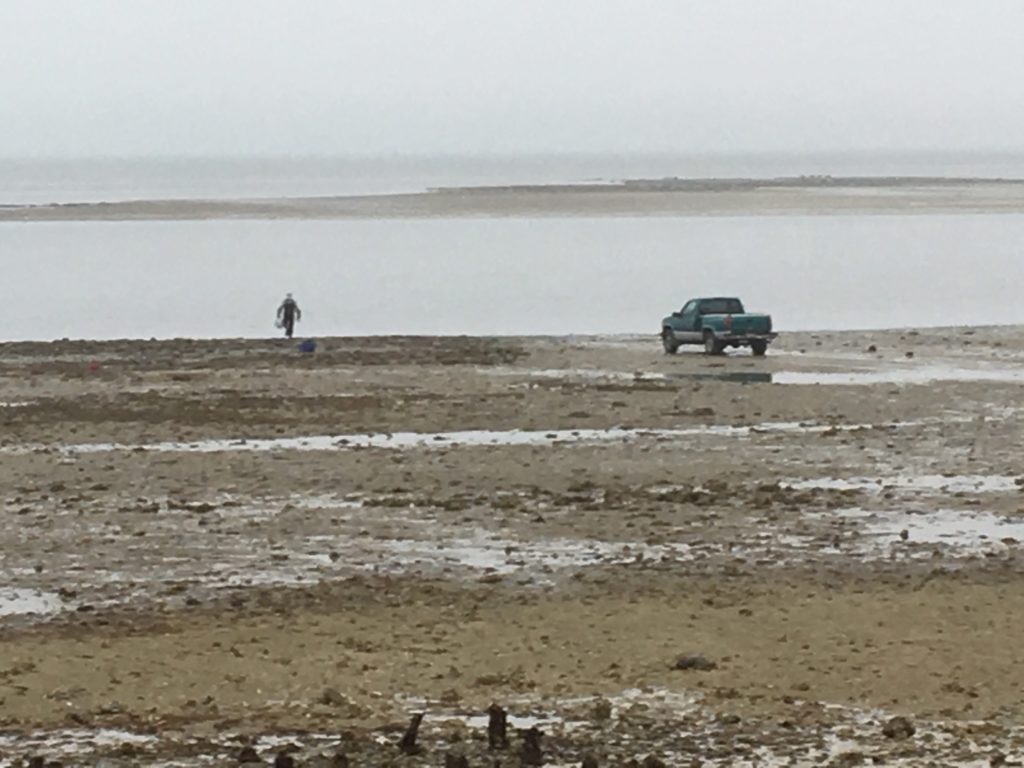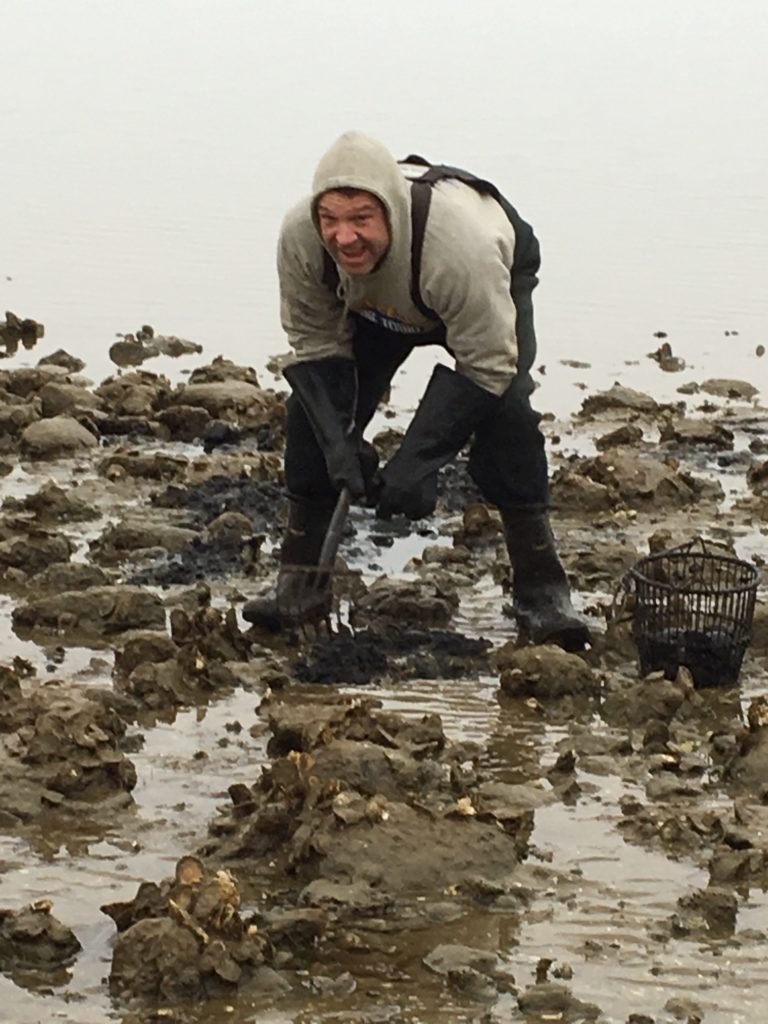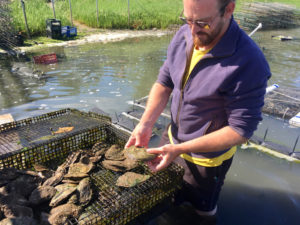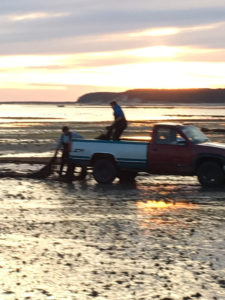
WELLFLEET — The town’s taxpayers now own over 162 acres of shellfish flats on Indian Neck, the most productive part of the harbor, after purchasing the acreage from the How Do You Like Them Apples (HDYLTA) Realty Trust.
The purpose of the $2 million purchase, finalized at a closing last week, was to protect public land so that local residents have a low-cost way to get into shellfishing, a well-paying, year-round, and historic industry, said Nancy Civetta, Wellfleet’s shellfish constable.
But the transaction puts the spotlight on the town’s role in granting or transferring leases to residents who want to grow and harvest shellfish. (The leasing of the flats is a separate issue from their ownership; in Massachusetts, unlike any other state, the intertidal zone between the mean high- and low-tide lines, may be privately owned.)
According to town regulations, this is how it works: the town leases flats to the public and charges just $25 an acre per year. Whenever a grant — that is, an area of the flats to be leased — becomes available, the town holds a lottery for qualified shellfish farmers to determine who will get it.
Only one such lottery has taken place in the last 18 years, even though dozens of grants have changed hands.
To be awarded a lease you must be a Wellfleet resident, and you must have some experience working the flats. Current regulations require that grantees have held a commercial shellfishing permit or worked as an employee in the aquaculture industry for the preceding three years. You must also produce a five-year plan for the select board to approve a lease.
Conceived as a way to manage a public resource, the leases are not meant to be bought and sold. And yet when a grant is passed from one lease holder to the next, money often changes hands.
While it is illegal to sell a lease, it is perfectly legal to sell shellfish and aquaculture equipment. No one monitors the amount of money that retiring lease holders charge new lease holders for the shellfish and equipment on their grants.
“The truth is, yes, money has changed hands and it’s usually tied to equipment and product remaining on the grant,” said Civetta.
Handing Grants Down
Paying a former owner for shellfish and equipment makes sense because people do invest thousands in this business, said Toby Storer, who has held an aquaculture lease in Wellfleet since 1979. He is also one of the four beneficiaries of the HDYLTA Trust, which sold the Indian Neck flats to the town.
“If money is involved in a transfer — and it usually is — it’s under the pretext that it’s for product,” he said. “That has some validity.” But, Storer added, there is very little transparency about the monetary transactions that almost always take place in a transfer of a license. He said he’s heard of large sums changing hands. There are also cases of lease holders subleasing their grants, he said.
Storer said that if this were a deal between two private business owners, that would be one thing. But now that the town has bought HDYLTA’s shellfish flats, this is truly public land acquired with a taxpayer investment.
“So there needs to be someone looking at that very carefully,” he said.
Regulation of the transfer of licenses was at the heart of H. 746, the so-called Cutler bill, which most shellfish farmers in Wellfleet oppose and which now appears to be dead in the water. The Mass. Aquaculture Association (MAA) supported the bill, but has since backed away from it because of widespread opposition.
“The bill was intended to address a shortcoming of the existing law that is increasingly becoming the issue for oyster farmers — namely that there is little consistency in the way licensed shellfish lease transfers are handled at the municipal level,” wrote MMA President Seth Garfield in an Oct. 9 letter to the legislature. “The nebulous status of these leases puts the viability of these businesses and the jobs associated with them at risk. The intent of the bill was to make the status and transferability of these leases more stable and predictable.”
Most Wellfleet shellfishermen oppose H. 746 because they see it as a threat to their traditional ways of handing grants down to children and co-workers.
“I’m mostly concerned that we keep our heritage,” said shellfisherman Richard Blakeley on Nov. 1 at a legislative update session sponsored by the Wellfleet Shellfishermen’s Association. “Joe Francis’s grandson Aaron is working his grant. It’s a wonderful thing. We want to hang on to that.”
‘It’s Supposed to Be Given Back’
Retiring lease holders almost always select the people who will take over their grants. While the successor must meet the criteria in the shellfish regulations, and the select board has the final say, private deals mean it is rare for flats to become available to the public.
It happened for the first time in at least 18 years in 2018 when Tim Hughes and Rick Merrell gave up their grant to the town. Justin Lynch, a shellfishermen for 20 years in Wellfleet, was one of 12 people to enter the lottery for the Hughes-Merrell grant.
Hughes told the Provincetown Banner in 2018 that he felt the way the grants get passed down was unfair. “Everyone has some way of selling,” he said then. “You’re not supposed to get property from the town and hand it down to your kid. We gave it back because it’s supposed to be given back.”
Hughes did not wish to comment for this article.
Each town has authority on shellfish regulations, and there is wide variation from town to town. Some towns allow lease holders to pass on their grants only to family members. Some towns allow no more than two people to be lease holders on a single grant. Some towns, like Chatham, don’t allow grants at all.
Chatham Shellfish Constable Renee Gagne told the Cape Cod Commercial Fishermen’s Alliance that almost every spot on Chatham’s flats has a history of being naturally productive, and so “the thought of taking public lands and putting it in the hands of one private grower [isn’t supported]. This is our blue-collar industry. When everything else fails, everyone relies on the quahog.”
Civetta said Wellfleet has set up its regulations through a public process that works best for Wellfleet, which allows four people to share the lease for one grant.
The intention in Wellfleet is to allow someone to “operate as a private business — however, a business that has really, really cheap rent,” Civetta said. “So it’s a great way in. This offers people a really easy way to make a year-round living on the Cape, through wild shellfishing or grants.”
Ginny Parker, an organizer of the Wellfleet Shellfishermen’s Association, said the town’s aquaculturists like the way Wellfleet handles license transfers.
“The guys don’t seem to have a problem with the transfers,” she said. “Some older guys who want to retire and don’t have anyone to give it to don’t want it to go back to the town because they will lose their investment.”
